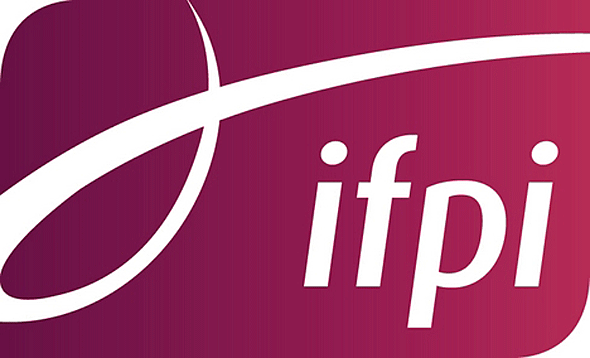Earlier this year The Unsigned Guide asked you, the independent and unsigned musicians of the UK, to provide us with feedback on your views of record labels and how necessary they were to you in today's music industry. And now the results are in and presented, along with masses of other information about the global music business, in the IFPI's Investing In Music report. The report is available to download for free below, but first let's get a snapshot of some of the quick facts unearthed in the report.
• Record companies’ total investment in A&R and marketing tops US$4.5 billion annually according to IFPI’s Investing in Music report
• Labels have maintained A&R spending at US$2.7 billion, representing 16 per cent of global recorded music revenues, despite the economic recession
• More than 70 per cent of unsigned artists would like a recording contract according to two new surveys
London, 12th November 2012 – Record companies have defied the global economic downturn to invest US$4.5 billion annually in artists and repertoire (A&R) and marketing, according to a comprehensive new report from IFPI on the changing economics of the music business.
Record companies remain the primary investors in artists, maintaining A&R spend despite declining overall revenues in recent years. Labels spent US$2.7 billion in 2011, only marginally down on 2008 (US$2.8 billion), despite an overall decline of 16 per cent in the trade value of the industry globally over the same period. Revenues invested in A&R increased from 15 to 16 per cent of industry turnover between 2008 and 2011.
Music companies invest a greater proportion of their global revenues in A&R than most other sectors do in research and development (R&D). Comparisons show music industry investment exceeding that of industries including software and computing (9.6%) and the pharmaceutical and biotech sector (15.3%). The comparisons are based on the European Commission’s 2011 EU Industrial R&D Investment Scoreboard.
Two new surveys, conducted in the UK and Germany in 2012, show more than 70 per cent of unsigned acts want a record deal, with marketing leading the perceived benefits of record company support.
Investing in Music is published today by IFPI, representing the recording industry worldwide, in association with WIN, representing independent labels internationally. With fresh data and scores of case studies, the report outlines the evolving and enduring partnership between labels and artists in the digital world.
Frances Moore, chief executive of IFPI, says: “Investing in Music highlights a simple truth – that behind the highly visible world of artists who touch people’s lives there is a less visible industry of enormous diversity, creativity and economic value. This report shows the role record companies, major and independent, play around the world in discovering, nurturing and promoting artistic talent.”
There are more than 5,000 artists signed to major labels’ rosters, with tens of thousands more signed by independent labels. One in four artists on labels’ rosters is a new signing, highlighting the role of fresh talent as the lifeblood of the industry.
Alison Wenham, chair of WIN, says: “Today, the relationship between the artists performing music and the investors supporting them has subtly changed and is continuing to evolve. The traditional model of significant advances and marketing support from larger record companies to artists remains widely in place, but there is now a greater emphasis on partnership, shared skills and shared revenues.”
The report features data from record companies and case studies from around the world, including studies on Michael Bublé, Raphael Gualazzi, David Guetta, Jan Lisiecki and Sexion D’Assaut. Other highlights of the report include:
• Labels are taking advantage of new digital media channels, running more focused, cost-effective promotional campaigns and increasing their use of social networking and new media. Reflecting this, the industry’s marketing spend is estimated to have declined from US$2.4 billion in 2008 to US$1.7 billion in 2011. The fall is also put down partially to the impact of piracy and declining revenues, which has squeezed labels’ marketing budgets.
• Unsigned artists want a record deal. Research conducted with The Unsigned Guide in the UK found 71 per cent of unsigned acts wanted a recording contract. BVMI research in Germany found that 80 per cent of unsigned artists wanted a recording contract. Marketing support is the most valued form of investment (with over 70% of artists citing this in both surveys), followed by tour support and the payment of an advance.
• The costs of breaking an artist in a major market remain substantial at up to US$1.4 million. The cost typically breaks down as payment of an advance (US$200,000), recording costs (US$200,000-300,000), video production costs (US$50,000-300,000), tour support (US$100,000) and marketing and promotional costs (US$200,000-500,000).
• Live performance has not replaced recordings as the driver of the music industry. While record companies invest US$2.7 billion in A&R, there is little evidence of such substantial investment in new music coming from any other source. The top five global live acts of 2011 – U2, Bon Jovi, Take That, Roger Waters and Taylor Swift – all have substantial back catalogues of recorded material.
• Brand partnerships and synch deals have grown in importance. A recording deal unlocks a range of different revenue streams for artists and labels. These include a new generation of brand partnership and synchronisation deals, involving the use of recordings in TV, film, games and adverts. Synch income increased from negligible figures in 2008 to US$342 million globally by 2011. The report highlights the case study of Ellie Goulding, whose cover of Your Song was used in an advertising campaign, generating direct income and also helping lift the sales of her album by an additional 400,000 copies.
• Record companies invest in local talent and break it to a global audience. Domestic repertoire accounts for the majority of the Top 100 physical format album sales in all the industry’s major markets: USA (62%), Japan (77%), Germany (55%), UK (53%) and France (54%). Industry executives believe the industry will widen its revenue base in the future, expanding beyond the 10 countries where it currently makes 80 per cent of its revenues into new markets such as Brazil, China, India and Russia.
Related Links
http://www.ifpi.org/content/section_news/Investing_in_Music.html
http://www.billboard.biz/bbbiz/industry/record-labels/record-labels-invested-4-5-billion-in-a-1008011072.story
http://www.reuters.com/article/2012/11/12/entertainment-us-music-investment-idUSBRE8AB0J220121112
http://www.m-magazine.co.uk/news/record-label-marketing-holy-grail-for-unsigned-acts/
http://www.thecmuwebsite.com/article/as-ifpi-releases-its-investing-in-music-report-what-role-do-record-labels-play-in-2012/
Tags
ifpi, international federation of phonographic industry, investing in music, unsigned bands, unsigned artists, the unsigned guide







